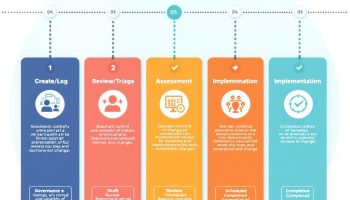
Understanding Project Management Tools
Project management tools help teams organize tasks, collaborate efficiently, and track progress toward goals. These digital solutions provide a centralized workspace for planning, executing, and monitoring projects while maintaining clear communication and accountability.
Why Businesses Need Robust Project Management Tools
Tools for effective project management are essential for companies facing **complex project demands** and managing remote teams. They break down information barriers by combining task management, team collaboration, resource allocation, and reporting functions into single platforms.
Companies that use tools for effective project management see concrete benefits like better deadline compliance, smarter resource use, and greater transparency throughout projects. By automating routine work and offering real-time project insights, these systems enable data-backed decisions while freeing teams to focus on meaningful work instead of administrative coordination.
These tools serve as the backbone for successful project execution, providing structure when juggling multiple deadlines and team members. You’ll find they reduce miscommunication and help identify potential bottlenecks before they impact your timeline.
The right project management solution adapts to your specific needs, whether you’re managing simple tasks or complex multi-phase initiatives with numerous stakeholders.
According to a study by Dewald and van der Meer, organizations that adopt project management tools can increase their productivity by as much as 20% and improve project success rates significantly.
9 Essential Tools for Effective Project Management: Unlock Your Team’s Potential Today!
Selecting the right tools for effective project management is crucial in ensuring seamless execution and success across all phases of your projects. This section outlines nine essential tools that can help streamline processes, enhance collaboration, and optimize performance for project teams of all sizes. Whether you need to improve task organization, foster team communication, or manage budgets more effectively, these tools offer the capabilities necessary to drive project success.
By leveraging features such as real-time collaboration, analytics, and robust resource allocation, your organization can enhance productivity, reduce bottlenecks, and ultimately, achieve your desired outcomes. Dive into the tools that can transform your project management experience and elevate your team’s performance.
1. Task Management & Organization
Selecting the right tools for effective project management starts with robust task management capabilities. Project management software with customizable task boards allows you to organize work according to your team’s specific workflow. These tools enable you to create, assign, and track tasks in various views—Kanban boards, lists, or calendars—adapting to different project methodologies.
Subtask functionality breaks complex projects into manageable components, creating hierarchical task structures that clarify dependencies and workflow. This feature is particularly valuable when collaborating on complex projects with multiple team members.
Priority setting helps your team focus on what matters most, while deadline tracking ensures timely completion of deliverables. The best task management tools include:
- Visual indicators for task status and priority
- Drag-and-drop functionality for quick reorganization
- Automated notifications for approaching deadlines
- Custom fields for additional task information
- Batch editing capabilities for efficient management
These features combine to create a centralized command center for your projects, reducing the risk of missed deadlines and improving overall productivity.
2. Team Collaboration Features for Streamlined Project Communication
Effective tools for project management must prioritize team collaboration to ensure project success. When teams can communicate seamlessly, projects move forward more efficiently and with fewer misunderstandings.
Real-time communication tools within project management platforms allow team members to discuss tasks, share updates, and resolve issues instantly without switching between applications. Many modern tools for effective project management include built-in chat functions, video conferencing, and @mention capabilities to notify specific team members.
File sharing capabilities streamline document exchange and ensure everyone works with the most current information. You can upload, organize, and share project documents directly within your project management platform, eliminating version confusion and reducing email clutter. For collaborative projects with multiple stakeholders, effective project collaboration depends on accessible file sharing systems.
Comment and feedback systems allow team members to provide input directly on tasks, documents, and project elements. These features create transparent communication channels where:
- Questions can be answered in context
- Approvals can be tracked
- Feedback history remains accessible
- Decision-making becomes more transparent
Expert Insight: To enhance project success, prioritize team collaboration features in your project management tools. Utilize real-time communication, seamless file sharing, and transparent feedback systems to foster efficient workflows and reduce misunderstandings. These elements ensure everyone stays informed, aligned, and able to make decisions swiftly and effectively.
3. Resource Allocation Tools for Project Success
Implementing tools for effective project management starts with proper resource allocation. Workload management features allow you to distribute tasks evenly across your team, preventing burnout while maximizing productivity. These tools provide visual representations of each team member’s current workload, helping you make informed decisions about task assignments.
Resource availability tracking is another crucial component that shows you exactly which team members are available during specific timeframes. By utilizing these tools for effective project management, you can quickly identify scheduling conflicts and adjust your project timeline accordingly. This visibility helps prevent bottlenecks caused by overcommitting your valuable human resources.
The capacity planning features within resource allocation tools enable you to forecast future resource needs based on project requirements. You can analyze historical data to predict resource consumption patterns and plan accordingly for upcoming projects. Consider these key benefits of resource allocation tools:
- Real-time visibility into team bandwidth
- Prevention of resource conflicts before they occur
- Balanced workload distribution across team members
- Improved ability to meet project deadlines consistently
Expert Insight: Utilize resource allocation tools to enhance project success by ensuring balanced workload distribution and real-time visibility into team availability. This prevents burnout and scheduling conflicts, allowing for informed task assignments. Leverage capacity planning features to forecast future resource needs, ultimately improving project deadlines and efficiency.
4. Time Tracking Tools for Effective Project Management
Implementing tools for effective project management should include robust time tracking capabilities to ensure accurate billing and resource allocation. Time tracking features help you monitor how team members spend their working hours, allowing for better project estimation and cost control.
Modern time tracking tools automatically log hours spent on specific tasks, making it easier to maintain accurate records without constant manual input. These tools for effective project management enable you to:
- Track billable hours with precision for client invoicing
- Monitor project hours against budgeted time allocations
- Identify time-intensive tasks that may need optimization
- Generate detailed timesheets for reporting and analysis
The most effective time tracking solutions integrate with your time tracking tools for developers and other team members, providing a unified system for everyone. They also offer visual representations of time spent, helping you quickly identify potential bottlenecks or areas where projects may be falling behind schedule.
By implementing automated time tracking, you’ll reduce administrative burden while gaining valuable insights into how your project resources are being utilized. This data proves invaluable when planning future projects and improving overall efficiency.
Expert Insight: Integrate robust time tracking tools into your project management to enhance accuracy in billing and resource allocation. These tools provide insights into team productivity, enabling you to optimize time-intensive tasks and maintain budget adherence. Automating time tracking reduces administrative burden while improving project efficiency and planning for future initiatives.
5. Reporting & Analytics: Visualizing Project Success
Implementing tools for effective project management requires robust reporting and analytics capabilities to track progress and make data-driven decisions. Project analytics dashboards provide real-time insights into performance metrics, helping you identify bottlenecks before they impact deadlines.
Custom report generation allows you to tailor outputs to specific stakeholder needs, focusing on metrics most relevant to each audience. Project managers can create comprehensive reports highlighting:
- Budget utilization percentages
- Task completion rates
- Resource allocation efficiency
- Timeline adherence statistics
- Risk mitigation effectiveness
Performance metrics tracking is essential for measuring both team and individual contributions against established KPIs. Modern database analytics tools enable you to drill down into specific aspects of project performance to identify trends and patterns.
Project progress visualization transforms complex data into intuitive charts and graphs, making information accessible to all stakeholders. Visual representations help you quickly identify deviations from the plan and implement continuous improvement strategies throughout the project lifecycle.
Expert Insight: Leverage project analytics dashboards to visualize performance metrics, identifying bottlenecks that could affect deadlines. Tailor custom reports to meet stakeholder needs, focusing on relevant metrics. Use visual data representations to simplify complex information, enabling quick identification of deviations and fostering continuous improvement throughout the project lifecycle.
6. Integration Capabilities for Streamlined Workflows
Selecting tools for effective project management with robust integration capabilities ensures your systems work together seamlessly. When project management platforms connect with other business applications, you eliminate data silos and reduce manual data entry. Third-party app connectivity allows you to link your project tools with essential services like Slack, Google Workspace, or Microsoft 365, creating a unified workspace where information flows naturally between systems.
API accessibility is another critical integration feature that empowers your technical team to build custom connections between your project management solution and proprietary systems. This flexibility enables you to enhance project integration management without compromising on specialized functionality your organization requires.
Email integration deserves special attention as it bridges the gap between communication and task management. The best project management tools allow you to:
- Create tasks directly from emails
- Convert email threads into actionable items
- Notify team members of updates without leaving your project platform
- Archive important communications alongside related project assets
By prioritizing integration capabilities in your project management toolkit, you can create a more cohesive ecosystem where information flows freely between systems.
7. Document Management Systems for Project Control
Effective document management is a cornerstone of successful project management. Tools for effective project management must include robust document capabilities that keep files organized and accessible. Version control features prevent the confusion of working on outdated documents by tracking changes and maintaining a history of modifications.
Document sharing capabilities allow your team to collaborate seamlessly regardless of location. The best project management tools provide secure sharing options with customizable permissions, ensuring only authorized team members can access sensitive information. Many tools also offer version control systems that prevent conflicting edits and maintain document integrity.
Template creation features save valuable time by standardizing documentation across projects. Your team can:
- Create consistent project plans
- Standardize status reports
- Develop uniform meeting agendas
- Design reusable proposal templates
These templates enforce documentation standards while reducing the time spent recreating similar documents for each new project. Cloud-based storage ensures documents remain accessible and protected from hardware failures that could otherwise derail your project progress.
8. Budget Management Tools for Project Success
Effective financial oversight is critical when implementing tools for effective project management within your organization. Budget management tools help you maintain control over project finances while ensuring resources are allocated appropriately.
Cost tracking features allow you to monitor expenses in real-time, helping prevent budget overruns before they become problematic. These tools automatically categorize and record all project-related expenses, giving you immediate visibility into where your money is going. Schedule variance tracking can be integrated with cost monitoring to identify potential budget impacts from timeline changes.
Budget forecasting capabilities enable you to:
- Project future expenses based on current spending patterns
- Model different financial scenarios for informed decision-making
- Anticipate potential cost overruns before they occur
- Adjust resource allocation proactively
Expense management functions streamline the approval process for project-related costs, reducing administrative burden while maintaining financial accountability. Most modern expense management tools include receipt capture, approval workflows, and cost overrun alerts to keep your project finances on track.
9. Security Safeguards for Your Project Data
Implementing robust tools for effective project management must include security features that protect your valuable project data. Access control mechanisms allow you to define who can view, edit, or manage specific parts of your project, ensuring information is shared on a need-to-know basis. You can implement security risk protocols to identify potential vulnerabilities in your project management system.
Data encryption is another critical feature that transforms your sensitive project information into coded language, making it unreadable to unauthorized parties. Modern project management platforms offer end-to-end encryption that protects data both during transmission and storage. This is particularly important when working with external stakeholders or on projects involving confidential information.
Backup systems ensure your project data remains recoverable even if primary systems fail. Look for tools that offer:
- Automated daily backups
- Cloud-based storage options
- Point-in-time recovery capabilities
- Data restoration testing
These security features not only protect your project assets but also build trust with clients and team members who know their contributions are safeguarded against potential threats.
Tools for Effective Project Management
Tools for effective project management encompass a comprehensive suite of features designed to streamline workflows, enhance collaboration, and ensure project success. These essential tools include:
- Task management systems
- Team collaboration platforms
- Resource allocation capabilities
- Time tracking solutions
- Analytics dashboards
- Integration abilities
- Document management
- Budget controls
- Security safeguards
These features collectively transform how teams execute complex projects.
Importance of Project Management Tools
Tools for effective project management are indispensable for enterprise users facing the challenges of coordinating cross-functional teams, managing substantial budgets, and meeting strict deadlines in competitive business environments. By implementing these powerful solutions, organizations can:
- Significantly reduce administrative overhead
- Improve resource utilization
- Enhance decision-making through data-driven insights
- Deliver projects more consistently on time
- Stay within budget while maintaining quality standards
Ultimately, these tools help ensure business success by facilitating smoother project execution and fostering collaboration among team members.






